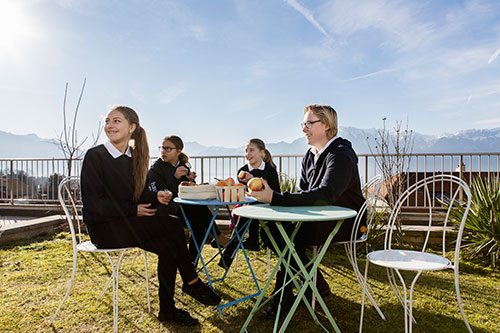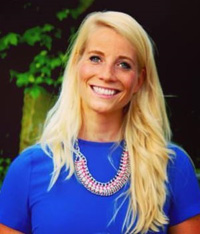
©Julie_Masson
by Sara Dubler, www.haut-lac.ch
In recent years, a great deal has been written on the various aspects of an international education, in particular about parent considerations and student benefits. This is mainly due to the continuing growth in the number of such schools year on year. Bilingualism and even multilingualism are often qualities associated with an International School due to the fact there are various nationalities represented, hence more languages spoken than there would be in a public school. Having said this, there are times when a parent, concerned with making the best choice for their child, comes to the conclusion that a bilingual education may not be the most appropriate option.
When is an English-only option / single-language curriculum a better choice?
- If a family is in a foreign country for a short term stay: families knowing that they are only contracted for 12-18 months may not necessarily look to have their child begin to learn an additional language which they may not use or have the opportunity to develop further.
- Knowing that you will return to your home country: If a family knows that they will return to their country where the host country language isn’t going to be useful, then they may choose not to put their children into the bilingual option.
- Age of the child: A child’s age can significantly impact on their ability to pick up a language – the younger the child, the easier language acquisition will be. “When it comes to learning a second language, adults are at a disadvantage. As we age, our brain’s plasticity (its ability to create new neurons and synapses) is reduced. Following brain damage that causes a loss of speech, for instance, researchers have observed that children are more likely to regain the power of speech, by creating new pathways in the brain to replace the damaged ones.” 1
- No previous language base: If a child is having to adapt to a new school, and is coming from a single language curriculum, then having to work in two languages may lead to unnecessary additional stress.
- Science/maths orientation linked to a future career in those fields: Some children are simply not linguistically predisposed and will find it very difficult to learn a language. However, their area of expertise could be science and maths which means they may not necessarily need to learn extra languages for their chosen career paths.
- Students with learning difficulties which could be exacerbated and where this would add undue stress: Not all children are able to learn in the same way, those experiencing learning difficulties may feel more comfortable being encouraged to master one language, instead of trying to juggle two or more.
- Future university/college plans: not every student going to university or college will be looking to incorporate languages into their chosen degrees.
After having taken into consideration all of the above arguments which favour a single-language education for some students, Haut-Lac International Bilingual school not only provides a bilingual (English/French) option but also offers a predominantly English-speaking class within every year group. Haut-Lac’s predominantly English-speaking classes were set up initially to assist families on short-term missions to Switzerland who did not need to build up their French.
In the primary school, the fundamental difference between the English section and the bilingual section is that the children in the bilingual section work and learn in two languages, on alternating days and with two classroom teachers. Those following the English option have one period of French per day and the rest of their curriculum is taught in English by one teacher.
In the secondary school, students choosing the English option will study French as a foreign language, whilst the other subjects on their timetable (with the exception of sport) will be taught in English.
The International Baccalaureate programme allows the flexibility of taking the subject examinations in English (although there is a “Language B” requirement), or choosing to take some subjects in English and some in French.
The profile of the families who benefit from the English stream has changed over the years, and it is now parents coming from abroad with children who may not yet have any knowledge of the English language who often opt to start on an English-only curriculum with the possibility of transitioning into the bilingual section in due course. It has become an increasingly popular stepping stone.
For more information on all our programmes please go to: www.haut-lac.ch
1. Belle Beth Cooper « The Science of learning new languages » ; http://blog.crew.co/the-science-of-learning-new-languages/
Author's bio

Head of Communications and Alumni Relations for Haut-Lac International Bilingual School, Sara Dubler is a bilingual, half Swiss and half Irish young woman who completed her International Baccalaureate at Haut-Lac in 2006. There she experienced true bilingualism and enjoyed being part of a local / international community.
She then did a BA at Stirling University and an MA at EM Strasbourg Business School before spending time in Belfast working in a Customer Engagement Agency. She recently moved back to Switzerland and entered the field of international education.
Sara is responsible for advertising, digital marketing, and communications at Haut-Lac International Bilingual School in St-Légier-La Chiésaz near Vevey and also for developing the alumni network. She is a marketing enthusiast who is passionate about the digital world and enjoys combining her knowledge and skills to boost the vibrant school community and watch it thrive and develop.
Haut-Lac International Bilingual School, www.haut-lac.ch








